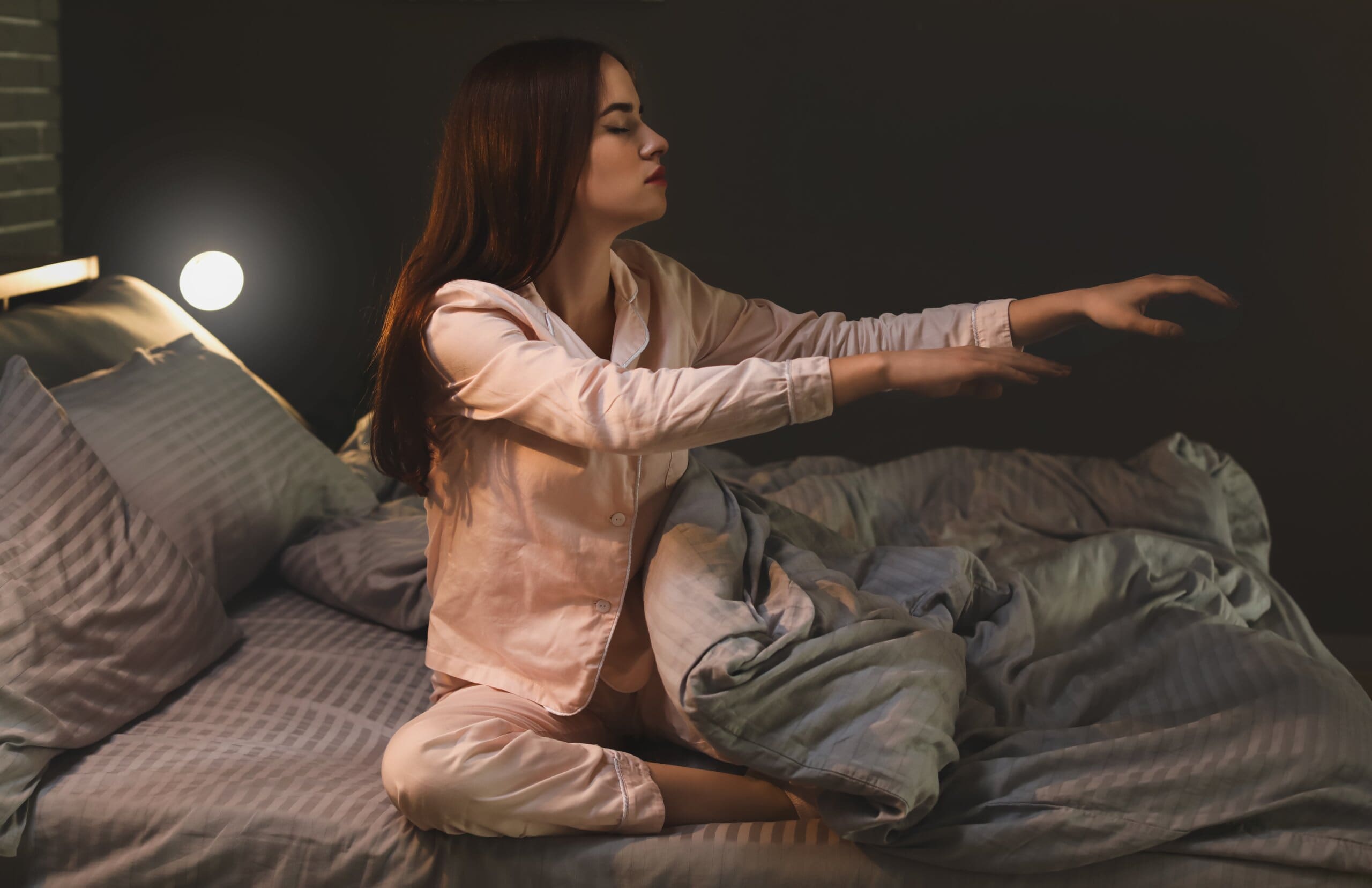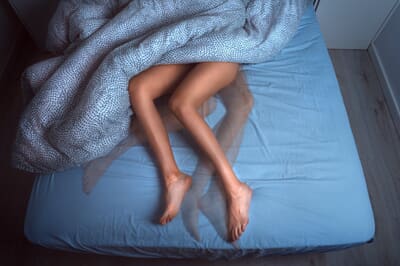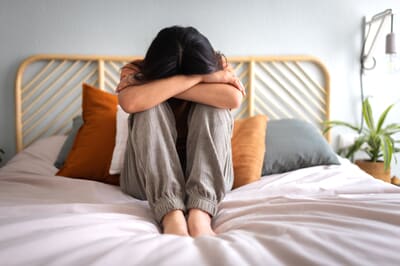It doesn’t matter how much you know about the science behind sleep, almost all of us are familiar with the concept of sleepwalking. But did you know that it’s far more common than you might think?
Experts in the field estimate that as many as 4% of adults worldwide experience regular bouts of this sleeping phenomenon every year! For the most part, it’s a fairly harmless occurrence, with many sleepwalkers sometimes unaware that they’ve even left and returned to the warm comfort of their bed.
However, in other cases, particularly in new environments, sleepwalking can pose a very real physical risk, with those affected tripping on obstacles or becoming panicked and disoriented upon waking in an unfamiliar space.
So, in order to help those who experience sleepwalking on a regular basis stay safe, CEO of MattressNextDay and Sleep Expert, Martin Seely, sat down with Amy Graham, someone who experiences regular sleepwalking episodes, to learn more about her experiences and tips on how to minimise the chance of sleepwalking episodes occurring in the future.
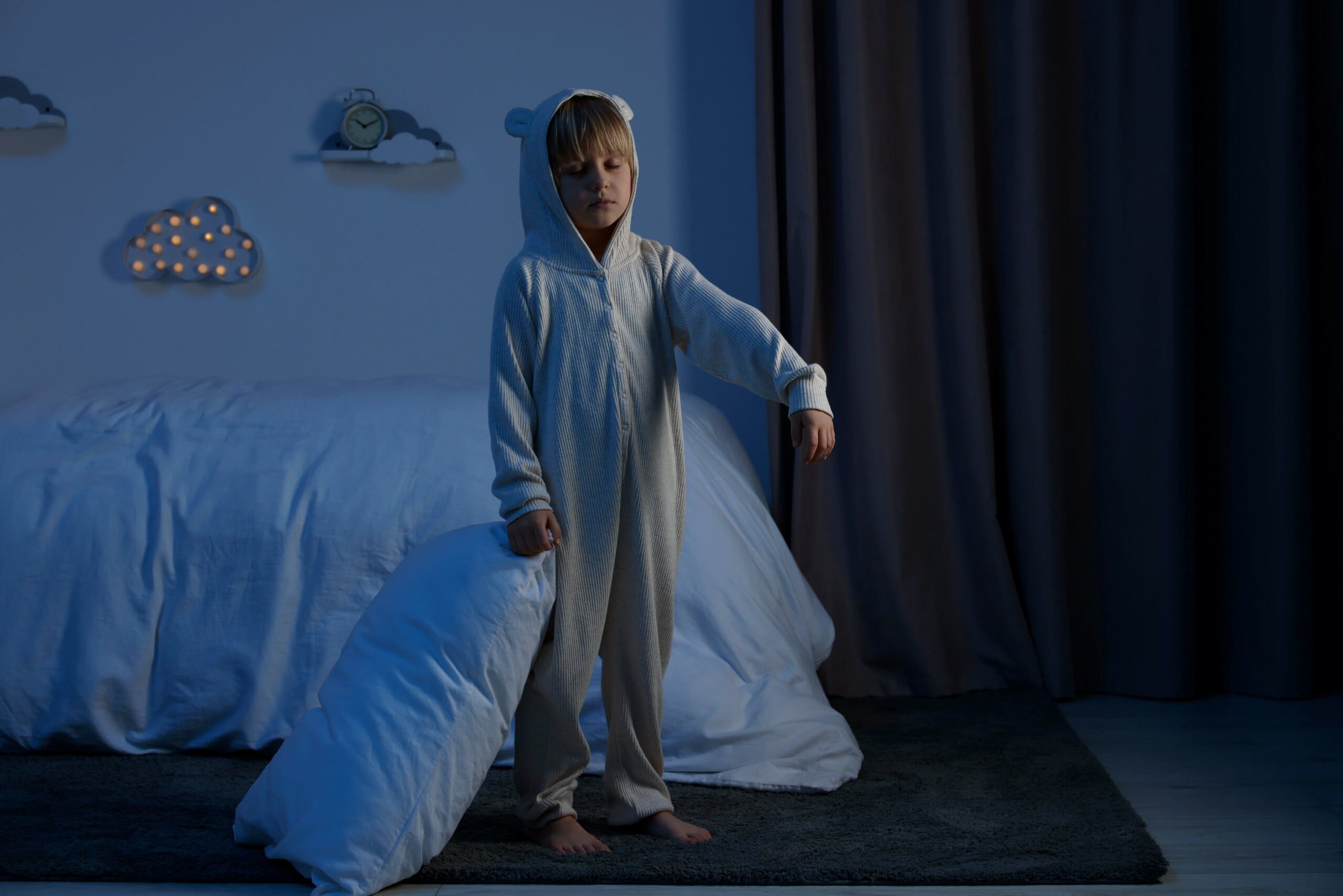
What causes sleepwalking to happen?
Despite having been aware of sleepwalking as a problem for years, it still remains unclear as to what exactly causes sleepwalking to begin with. Triggers often vary from person to person, making it hard to find one solution that can help everyone. And it can take time for each individual affected to find a method to reduce sleepwalking that works for them.
This was certainly the case for Amy Graham, who started sleepwalking in her early 20s, only to find it steadily worsening as she entered her late 20s. She soon noticed the increase in sleepwalking was having a detrimental effect on both her sleep and physical health, often affecting the day ahead, so she looked for ways to reduce it.
After a bit of research and experimentation at home, Amy happily shared with us five simple steps she follows that anyone living with sleepwalking can implement in their daily routine to reduce the chances of a sleepwalking episode occurring:
1. Reduce your TV and computer screen time
One major trigger of sleepwalking that experts have managed to identify in recent years is overstimulation from TV and computer screens. We all know that watching TV and videos on our laptops and phones late into the night is bad for our sleep, but as Amy points out, it can also be a major factor in causing sleepwalking episodes.
Amy noted that when she stopped watching TV in bed or doom-scrolling on her phone all the way to midnight, the number of times she experienced sleepwalking over the following weeks steadily decreased. And not only that, but she noted she was getting much better sleep overall as well!
2. Reduce your exposure to blue light
While reducing screen time is all well and good, sometimes using our phones or laptops in the evening is unavoidable. That’s why Amy also suggests activating your phone’s nighttime mode during the evening and wearing blue light glasses when possible.
Nighttime mode automatically reduces the amount of blue light produced by your phone, which in turn reduces the disruption caused to your body’s production of melatonin – the hormone responsible for sleep. By allowing your body to produce melatonin without excess stimulation, you’ll naturally find yourself getting tired just before bed.
3. Establish a calming atmosphere in your room
Calming her mind before bed is another step that Amy found helped to curb the regularity of her sleepwalking episodes. Even for those who don’t sleepwalk, a constantly racing mind can make getting to sleep on time difficult, which is why creating a calming space in your bedroom can be so helpful.
Whether by sitting down with a good book, engaging in gentle yoga, or simply sitting and meditating for a few minutes, you can calm your mind and body. This, in turn, will make getting to sleep easier as you won’t be dwelling on random, fast-paced thoughts.
4. Reduce your caffeine intake
Much like extensive screen usage, excessive caffeine intake is yet another thing we all know is bad for us, but struggle to curb. Fortunately, Amy points out that you don’t need to stop drinking coffee altogether, you just need to reduce how much you drink throughout the day, so your mind won’t be overstimulated at night.
Amy follows the often-cited advice of not drinking caffeine after lunchtime, with the latest cut-off being 3pm. This gives the body enough time to break down the caffeine already in your system before going to bed, ensuring you get much better sleep.
5. Establish and stick to a routine
Last, but not least, Amy highlights the importance of creating a bedtime routine and sticking to it. Consistency is key here, as the more often you go to bed at the same time, the sooner your body will adapt its melatonin production to match, meaning you’ll start to get tired around the time you’d normally be getting ready to sleep.
So, whenever you can, try to go to bed at the same time every day, even on weekends. This will prevent you from becoming overtired, improve your sleep, and hopefully reduce the likelihood of sleepwalking.
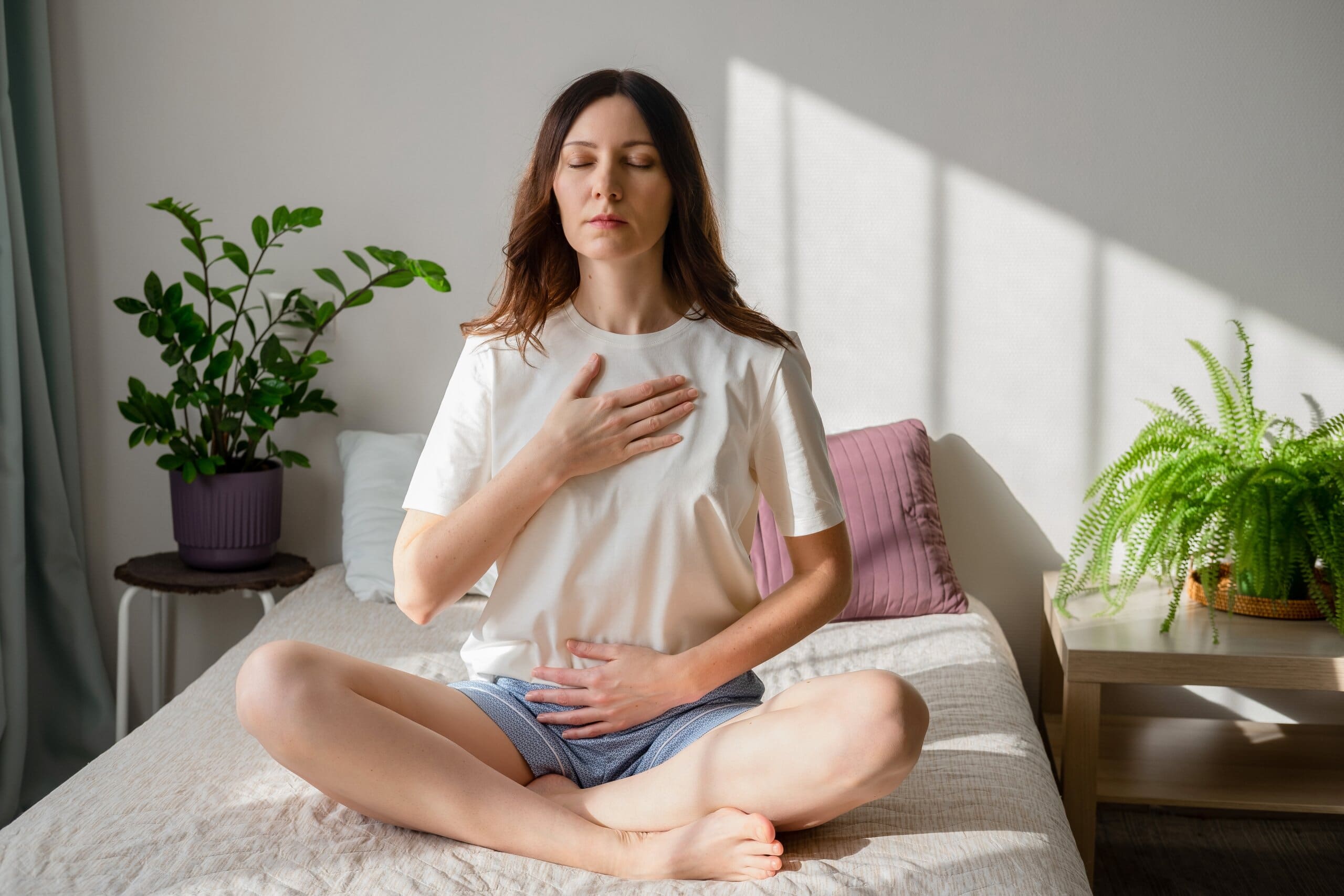
How to stay safe when sleepwalking
As our chat with Amy has pointed out, there are several things you can do to reduce the odds of you sleepwalking. However, these tips are by no means foolproof, and some nights sleepwalking is going to be unavoidable.
That’s why Amy also provided us with five tips you can follow to keep yourself safe when it does happen, mitigating the risk of falling over things or even winding up outside or in unsafe areas:
1. Clear any obstacles that could get in your way
A tidy room is a relaxed room, and for sleepwalkers, it’s a safer one as well. A messy floor covered in clothes and awkwardly positioned furniture all but guarantees that you could hurt yourself when sleepwalking, which is why Amy highly recommends cleaning up your bedroom space before turning in.
It might take an extra minute or two to do, but you’ll be glad of the clear space if you do find yourself getting out of bed in the night. And as an added bonus, a clean and tidy room also helps to improve your mental well-being, contributing towards making your room that calming space you’re after.
2. Secure your location
The last thing any sleepwalker wants is to find themselves waking up in an unfamiliar and dangerous location, especially if they’re staying somewhere they’ve never been before. This is why it’s so important to secure your room where possible.
If you can, always lock your bedroom doors and windows so you can’t exit the space. This is certainly important to do when staying in hotels, and it will make it much easier for anyone staying with you to help you if they need to.
3. Protect your valuables
Much like securing your room, protecting your valuables is another important thing to consider before you turn in for the night. Where possible, make sure anything you consider important, such as your keys, are stored safely away where they can’t be easily accessed.
On top of this, be sure to clear away anything breakable that you might knock over in the night, such as a glass of water. That way, you won't break anything or step on something you don’t want to.
4. Inform those you’re living with that you sleepwalk
While Amy’s previous three tips are important to follow, her fourth one is absolutely invaluable. Whether it’s your partner, flatmates, a friend, or family, it’s absolutely essential that you tell whoever you live with that you sleepwalk so they can help you if necessary.
Amy points out that sleepwalking doesn’t just affect her, but her relationships as well, and if they wake up because of her it can affect their sleep. In some cases, she’s even shaken her partners awake while still asleep, resulting in a bad experience for them. Something that could be made that much worse if they don’t know that you sleepwalk.
5. Make sure you’re wearing pyjamas
Finally, for her fifth tip, Amy raises the valid point that sometimes these tips won’t be enough to stop you from leaving your bedroom when sleepwalking, which is why it’s always a smart idea to sleep in pyjamas or with clothes on.
While not always needed when at home, in strange places where sleepwalking can occur more often, you’ll be thankful that you’re fully dressed should you somehow manage to wander around your friend’s home or out of your hotel room.
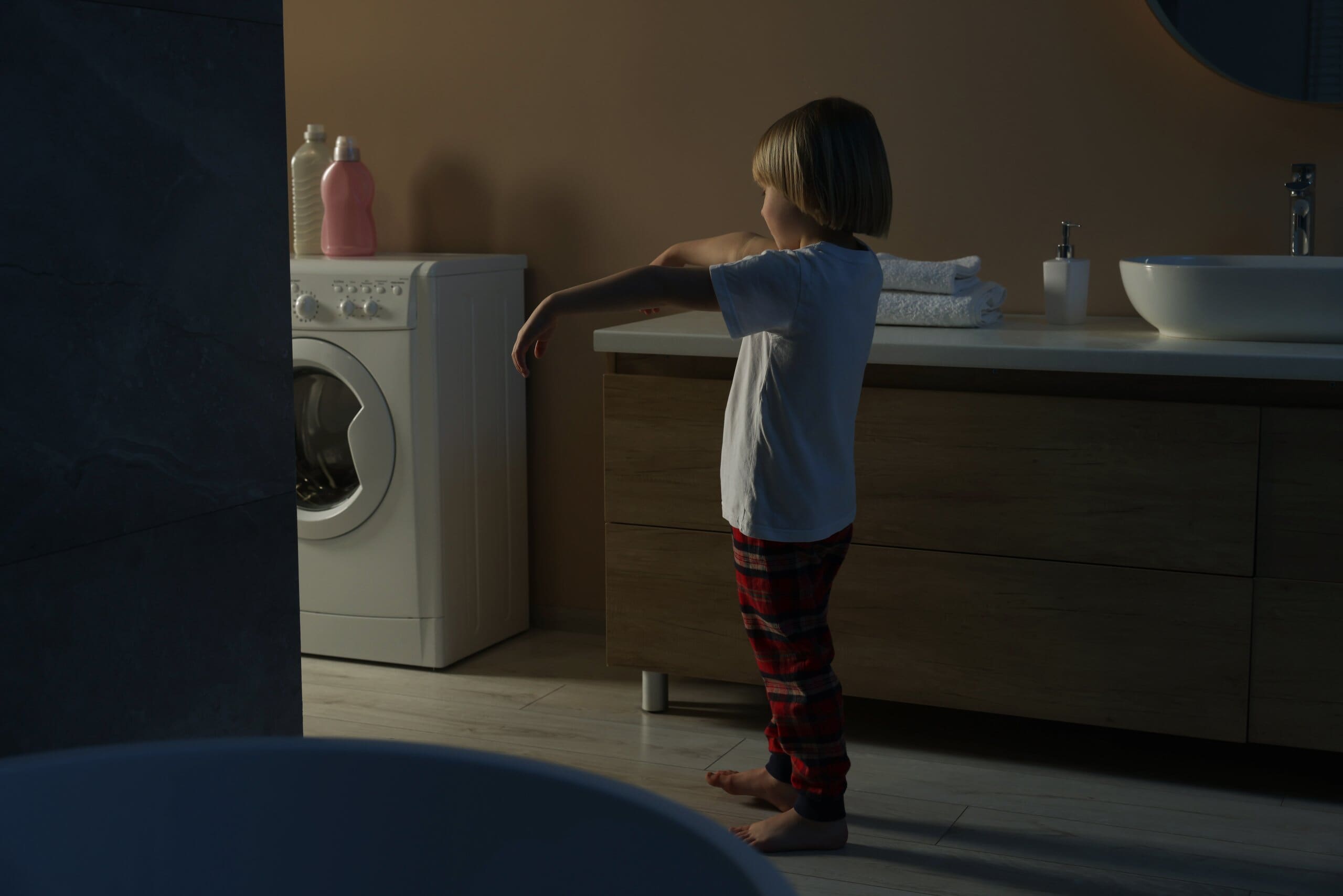
Should you help people who are sleepwalking?
There are many myths that surround what you should and shouldn’t do when you encounter someone sleepwalking, which is why Martin asked Amy to share her suggestions on what to do should you find yourself needing to help a friend or partner out.
Based on her own personal experience, Amy gave the following advice:
There are many myths that surround what you should and shouldn’t do when you encounter someone sleepwalking, which is why Martine asked Amy to share her suggestions on what to do should you find yourself needing to help a friend or partner out.
Based on her own personal experience, Amy gave the following advice:
‘Personally, I like to be woken gently because it helps me understand what’s happening. It’s often a really confusing and disorientating feeling being in between awake and asleep, so if someone gently says ‘It’s okay, you’re just sleepwalking’ then it really helps.
‘If they ask a load of questions or shake me or something instead, then it’s definitely not helpful!’
As you can see, there is certainly a lot you can do to help you stay safe and reduce the odds of sleepwalking occurring. However, perhaps the best way to mitigate the potential for sleepwalking episodes is to get a good night’s sleep – and for that, you need a good mattress!
Here at MattressNextDay, our experts can help you find the perfect mattress for your needs with just a few simple questions. Why not take our quiz to see what mattress is right for you or browse our full mattress range today?
